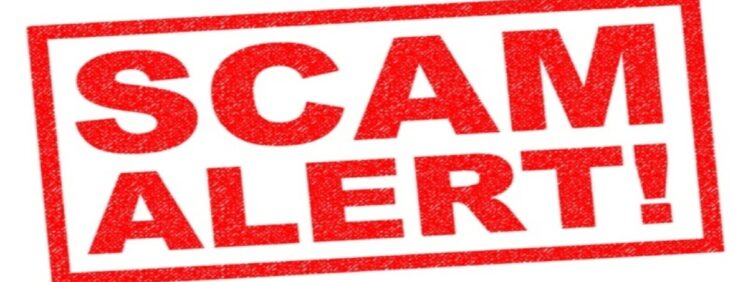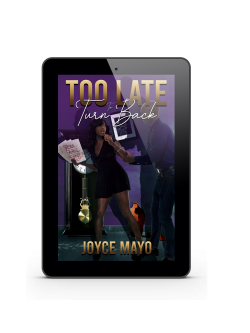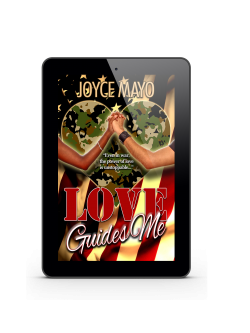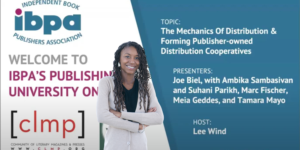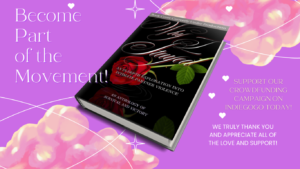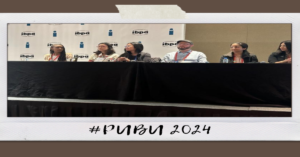Unfortunately, sharks and vultures exist in every aspect of the business world, and the publishing world is no different. They circle new, unsuspecting authors dangerously, plotting how they can use your naiveté to unfairly squeeze thousands of dollars out of you. While there are a lot of honest, ethical people in the publishing business, there are just as many crooked ones, and the best way to protect yourself from them is through two ways: 1) arm yourself with more knowledge about the publishing world (especially self-publishing), and 2) know how to identify the scams.
The Internet is littered with companies promising to be your publisher, get your book published overnight, make the process super easy, blah-blah-blah. The scariest thing about those companies is that they write their ads and web copy so convincingly, you feel compelled to give them a try, not knowing the hidden risks they aren’t telling you about.
The reality is this: you are either published, or you are self-published. There is no gray area, despite what some of these companies promise. If you are published, then a publishing house (no matter how big or small), has signed an exclusive publishing contract with you and in doing so, is pledging to pay all of the expenses directly involved in the production of your book.
Anytime you are paying out-of-pocket expenses for the production and publication of your book, you are self-published. Period.
And if you are self-published, why are you paying to share your profits, royalties, and publishing rights with someone else, instead of keeping what is rightfully yours? Before we go further, we’ll explore the major differences between being signed to a publisher and being self-published. Then you’ll understand how these scammer companies exploit those differences to your disadvantage.
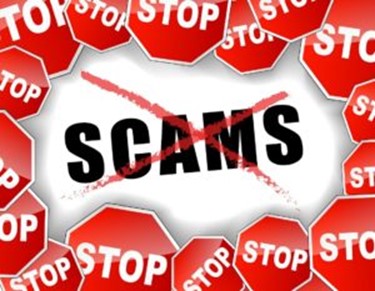 Understanding how the true publishing process works is the best “scam blocker” you’ll ever need.
Understanding how the true publishing process works is the best “scam blocker” you’ll ever need.
Traditional Publishing Houses
They are selective for a reason, and most small independent traditional publishers cannot publish just anything due to budget constraints. They understand the business of publishing and know that each book involves a huge investment of time and money. A print run is expensive, no matter if you’re doing it on your own, or if a publishing company is paying for it. As a result, a publishing house is going to be extremely selective about what projects they want to invest in.
You will have to go through a formal submission process with them and hopefully, you will be selected out of anywhere from hundreds to thousands of other manuscripts. However, you will not have to pay any publishing fees by them if you are selected. We have heard of some publishing houses that charge a submission fee or reading fee, but most of us (including Taevo) do not. Other than that, you should have no out-of-pocket expenses.
Side note: Taevo’s view on reading fees? While we don’t knock anyone else’s business model, we personally don’t agree with them and don’t charge them here. However, we can understand why some companies charge them. Manuscripts take time to read, and that takes away from time spent making money to keep their company afloat.
Honestly, the best practice of a reputable publisher is to just inform people that the submission process takes time, sometimes even up to six months. The publishing companies that don’t charge reading or submission fees take the longest to get back to you because they’re inundated with so many manuscripts. We always recommend that you check the latest Writer’s Market or our Big Black Book of BIPOC Publishers to find trusted publishers to submit to.
 Impatience with the submission, selection and publishing process is often the reason so many writers fall prey to scammers.
Impatience with the submission, selection and publishing process is often the reason so many writers fall prey to scammers.
Back to traditional publishing, though. In exchange for them investing in all of the production costs, you are agreeing to grant them the exclusive licensing right to publish and distribute the book for a specified period, during which they agree to share royalty percentages with the author – with the larger of the royalty percentage going to the publisher. Some will even sign a multi-book deal with an author if they see particular promise in their work, as they want to ensure that no other publisher can swoop in and cash in on the success of the sequel.
Before you imagine a smarmy publisher rolling around his office in a pile of money, keep in mind that out of the money generated from sales, about half goes toward replenishing the costs of creating and promoting your book. This includes the fees for designing your cover, several rounds of edits, prepping the manuscript for the printer, printing costs, and even digital conversions for e-book copies. There are so many steps that a manuscript goes through during publication that people have written entire books about it.
The gist is that publishers pay tens of thousands of dollars for a print run of your book, and even more thousands of dollars to market and promote it, all in the hopes that they’ll sell the necessary amount to break even. They have a large incentive to move as many copies as possible, as this is the return on their investment. It cannot be stressed enough how selective they have to be about what books – and authors – they take that risk on.
How This Fact Is Exploited By Scammers
Many hopeful, wide-eyed authors grow disappointed with the rejections that naturally come with the submission process. As a result, they become prey to the vultures and sharks lurking out there with promises to make you a published author if you merely pay them ‘X’ amount of dollars.
These companies are taking advantage (quite unethically) of the spirit of self-publishing, which champions the notion that an author can take publishing into their own hands, cut out the middle man, and produce a high-quality book. You can finally be an author, which is wonderful, right? Most great manuscripts are rejected repeatedly, and many talented writers never see the light of day. Self-publishing alleviates this problem, right?
Yes, it does. However, self-publishers have struggled to gain the respect they deserve, mainly because most of these authors fail to see publishing as a business, thus refusing to take the time necessary to learn the intricacies that come with publishing. The result? Decades of shoddy-looking, ill-formatted books that did not receive the respect of the publishing houses. Those books screamed, “I AM SELF-PUBLISHED!”, and back then, “self-published” was synonymous with “low-budget” and “low-quality”.
Self-publishing pioneers like Dan Poynter have mastered the process, and they started a trend of publishing books that rivaled those of big publishing houses. They implemented successful genre-specific marketing and promotional strategies and generated sales that put larger publishing houses to shame. The best part? Those self-publishing pioneers were nice enough to write books about the best tips and strategies to produce those high-quality books, and all you have to do is learn from them.
The Truth About Self-Publishing
With self-publishing, you will have to pay. There is no such thing as a publisher “sharing” the cost with you. Publishers don’t do that, period. We are aware of the rise of “hybrid publishers”, but as a traditional publishing house, we just feel that service may be more for authors who want to self-publish but want some help througout the process. But don’t get it confused – you’re still self-published, even if you sign a contract with them and they put their publishing name on your book.
There are two ways your book can be published: either the publisher pays, or you do. And if you pay money to a company that says they are now officially your publisher, you are being scammed. They are not your publisher. They are a vanity publisher. Once you start paying, you are officially self-publishing, no matter what a company may say, what packages they offer, or what contracts they put in front of you. Also, make sure to read the fine print on any contract they try to have you sign to ensure you are not unknowingly giving up rights you don’t want to or being roped into a contract that tries to bind you and your work to them in perpetuity (or “forever”). Yes, there are scammy companies that actually try to slide that into a contract hoping you’ll just happily sign.
So how do they get away with these unethical practices? By exploiting your lack of knowledge, enticing you with promises of finally achieving your dream of being published, and roping you into confusing contracts that usually take more than they give. They feel that they can legally do this because you signed a contract giving them permission to, but the way it’s done is slimy and dishonorable, and you can fight these contracts.
Many authors don’t find out the truth about their losses until it’s too late. These writers then become disillusioned by the publishing process, give up on ever trying to publish their manuscript, and the world is deprived of what could be a fantastic piece of work.
 What would your reaction be if one of these publishing scams happened to you?
What would your reaction be if one of these publishing scams happened to you?
Those companies also give reputable contractors and publishers a bad rap, and it’s up to companies like mine to expose their practices and restore the writer’s trust in us. The first step is to know how to identify these seedy conditions. Hungry writers looking for publishing alternatives may have seen a few of these types of companies:
“Hybrid Publishers”
This is a type of publishing where companies claim to “share” the publishing costs with the author, and in return own some of your rights or take a percentage of royalties. They promise to have big connections with distributors to get you into big bookstore chains but few can deliver on the promise. Many times, authors sell anywhere from 300-400 copies of their books, if that.
They promise to promote your book, but this usually means it is just listed in their company catalog for their subscribers. No relationships with media are cultivated to build your author platform or promote your book further – all of that falls on you to do.
This kind of publishing is becoming more popular, but it just doesn’t seem ethical to us, no matter how many conversations we have with owners of hybrid publishing companies. We still can’t wrap our heads around the logic of why anyone would pay a c company thousands of dollars (that’s self-publishing, remember?) to “accept” your book, only to still owe them a piece of your royalties and publishing rights. That is one of the main reasons you are advised to avoid companies like these. They appear attractive, but in reality, they’re just using your money to manufacture your book.
Print-On-Demand (P-O-D Publishers)
First and foremost, print-on-demand is a type of publishing that has been around for decades, and publishers who exploit this book production model have been doing it for almost as long. First, let’s talk about what POD publishing is. It’s a commonly-used production method where books are not printed first in a large run and then sold; the process actually runs in reverse. In this case, each book is printed as orders are received. Since we are eco-friendly and see this as an innovative publishing method, we currently employ this method via Ingram Sparks. However, in the past, it carried many risks and problems.
Back then, the author had no guarantee of the quality of the book, or even what the final appearance of it will be. The printed books were usually of low quality. The pages were cloudy, the printed letters looked muddy, and oftentimes the text was off-track with the page. And those were just the copies received upfront that the author was responsible for selling on their own. Neither authors nor readers had any idea of how bad the copies ordered would be – it was only after paying for it and receiving it that they knew they had a shoddy product. By then, the damage was done, and the author’s credibility was harmed.
The process has vastly improved and now P-O-D is usually the best way to go for bourgeoning authors. Unfortunately, you now have companies coming out of the woodwork to exploit the process, all while calling themselves publishers. A POD publisher is a company that charges an author money under the guise of being a reputable publisher who is offering them a publishing contract. In reality, they are just using the same method vanity and hybrid publishers use to produce your book. The only difference is that you’ve paid them upfront, they paid the cheapest amount possible for the production of your books and pocketed the rest.
The worst part about this method? They still have the audacity to charge you money upfront for publishing costs, even though nothing is printed until an actual sale comes in, and even take a portion of your royalties! Some even have you sign over your publishing rights for a set amount of time. Again, this is AFTER you pay them anywhere from $700-1300 dollars initially. Remember: they haven’t even gone into the upsell yet, which involves “promotion packages” and “additional copies” at a lower rate.
This is not true publishing, and upon researching POD publishing companies as you embark on your journey, hopefully your instincts will tell to stay far away from them. You’ll be glad you did. Their terms are so suspect that anyone should run the other way upon being approached, and traditional publishers will never operate in such a manner.
Vanity Publishers
A vanity press is a publishing company that charges authors upfront to have their books published, and has no real selection criteria. They’ll take anyone, even though they ask you to submit a query and sample. They exploit an author’s fear of rejection by making you go through a “submission process”, knowing that they are going to send you an acceptance letter anyway, as long as you’re willing to pay. Even with all the information about publishing scams out there, these vanity publishers are still around, believe it or not.
With this scheme, you pay a “publishing company” anywhere from $1500-5000 for them to typeset, edit, and print a set number of copies of your book. They even get a cheap cover made for you… how nice.
Much like POD publishers, the quality of the book is usually horrible, the editing is non-existent, and everything about it shouts that it was not done by a real publishing house. They put their name on your book spine calling themselves your publisher, then turn over all the printed books to you. Why? Because you are actually in charge of selling them, not the vanity press. They don’t market or promote them outside of their company newsletter, and definitely don’t get them into bookstores for you. Congratulations. After all of that, you are still a self-published author, only now you have 3,000 crappy-looking books to show for it.
After their shady practices were discovered, they began to contract with P-O-D publishers to disguise what they were doing, and that was more than likely how the idea of “hybrid publishing” was formed.
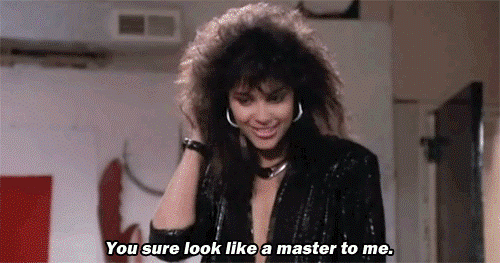 Don’t be fooled. Vanity publishers are nothing like the Vanity we grew to love in “The Last Dragon”… but they’re smooth talkers and great at stroking your ego to get you to give them your money.
Don’t be fooled. Vanity publishers are nothing like the Vanity we grew to love in “The Last Dragon”… but they’re smooth talkers and great at stroking your ego to get you to give them your money.
Traditional Publishers vs. Hybrid Publishers
Lately, more and more hybrid publishers are fighting to gain better reputations. They claim to not charge authors as much and to actually try to market and promote the books of their authors. Also, publishing unions and groups are placing harsher restrictions on them. As a result, they now find themselves in spaces with small indie traditional publishers.
For example, Taevo Publishing belongs to the IBPA, or the Independent Book Publishers Association. We like having access to the valuable information offered, as well as being in a space where other independent traditional publishers nationwide can share the same pains we may have. After a few meetings, we noticed that during the “breakout mixers” – where different types of publishers and service providers are randomly thrown into rooms together to discuss the topic of the day – more and more hybrid publishing companies were showing up. We didn’t know what to think at first and honestly thought about quitting the IBPA, thinking it was perhaps opening up it’s doors to less-reputable companies in order to garner more membership fees.
No, we didn’t quit. But we did decide that we would just continue to network with the publishing houses that we had the most in common with and whose publishing ideals lined up most with ours. However, they did set a strict standard for hybrid publishers that wanted to join their association, which includes rules like:
- Define a mission and vision for its publishing program.
- Vet submissions.
- Publish under its own imprint(s) and ISBNs.
- Publish to industry standards.
- Ensure editorial, design, and production quality.
- Pursue and manage a range of publishing rights.
- And more… much more.
We’ll never tell the IBPA how to run its business. We are there because we enjoy being a part of something that we feel will open doors and connect us to other like-minded publishers of color. However, we found that in meetings it was hard to talk to the hybrid publishers. We just didn’t have enough in common regarding our woes, pains, and vision.
To us, they are similar to vanity and POD publishers with the practice of charging their clients upfront to be represented by them. They promise to “share” the publishing costs with the author, and in return, promise to get your book published for you. Like POD publishers, they take a percentage of the royalties and retain part of your publishing rights, but many times you don’t get a return on your investment. This is because while they may promise to market and promote your book, they don’t and just use the excuse of the “book market being down” to explain low book sales.
The problem with these so-called “publishers” is that their questionable practices make it harder for small publishing companies, and those offering publishing consulting services, to explain just what they do, and how their services would benefit an author who is interested in trying the self-publishing route.
One distinct characteristic of all of these companies is this: they have their own team in-house who performs ALL of these services, and if you contract with them, you can’t use your own outside people. You can’t pick and choose specific services with them – you get package deals to choose from that are essentially “all-or-nothing” sales persuasions. You never know who exactly is working on your project at any given time, You never talk to the editor, cover designer, or printer directly, and are usually referred to an account representative if you have an issue.
Safe Alternatives
The first alternative is to find a consultant that has extensive publishing knowledge and experience, and who can refer you to trustworthy sources for more information and reliable services. Contract directly with the vendors you will need to publish your book, and make sure to look through their samples and select the best person for each task.
Your next alternative is to take referrals from self-published authors and publishing experts who have successfully produced professional-quality books. You’ll know these books when you see them. At first glance, you’d never know they were self-published. And when you do find out they’re self-published, your response is always, “What? That’s self-published? YOU published that? A big publisher didn’t do that?”
Those are the people whose blogs you should follow, whose methods you should research, and whom you should get referrals from. Find out integral information such as who edited their manuscript. Who was their cover designer? How did they get the eBook version of their book published online? What company did they go through for that service?
Your third option is research, research, research. Most beginning authors have no clue about how much work and research just publishing an eBook entails. A print run begs even more research (and money).
Certain questions must be asked of yourself to ensure optimum results: How do you know if you’re dealing with a reputable printing company that can produce the best results? Not only that, but research the intricate details of book printing like the weight of the paper used for optimal cover and page feel. For example, different qualities, textures, and weights of paper exist, and you want to match the industry standard of quality.
What kind of ink should you select when the printer asks? Do you trust their recommendation? You should know that various qualities of printer inks render differently on a page, and can even bleed when wet. What about the most durable binding? You want to make sure your book doesn’t fall apart in the buyer’s hands, right?
This is why many new authors will seek a consultant or coach – someone who has been through the process before and emerged successful. These are people who have valuable knowledge and information that they distribute by sharing their experiences with others. These are people who will counsel you on how to build your own team of contractors that you trust, and refer you to proven leaders and experts worth hiring.
Fear Not, For Knowledge Is Power
Publishing your book is not an impossible dream, nor is it one you should shy away from. However, it would be a lie to say that publishing a book is “easy” and that it can be simply done with a few thousand dollars. Getting accepted by a publisher is hard, and self-publishing can be even harder.
What is the one major key to navigating these hurdles successfully? Surrounding yourself with trustworthy people who are each skilled in one area of your book’s production. Put your own team together; don’t pay some third party to do it for you. Assembling your self-publishing team is like putting together the perfect puzzle – the people you hire are the pieces you need, and you just have to find the right fits to make it all come together. Now all you have to do is get started.
What do you think? Are there any publishing scams out there you want to share? And how do you think authors can tell the difference between scammers and service providers?
Feel free to chime in with a comment and don’t forget to share with someone who can benefit from these tips.
